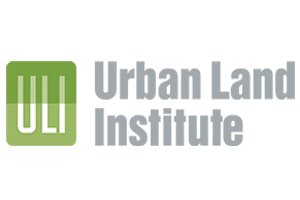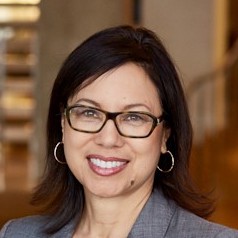by Emily Langner
 During the Urban Land Institute’s (ULI) virtual Spring Meeting on May 10-12, industry professionals from New England, California, Colorado, and other parts of the country convened to address the challenges and questions posed by the events of the last year, and to cover ongoing topics such as lessening the environmental impacts of real estate developments, meeting emerging housing needs, and ways to tackle sea-level rise.
During the Urban Land Institute’s (ULI) virtual Spring Meeting on May 10-12, industry professionals from New England, California, Colorado, and other parts of the country convened to address the challenges and questions posed by the events of the last year, and to cover ongoing topics such as lessening the environmental impacts of real estate developments, meeting emerging housing needs, and ways to tackle sea-level rise.
While the industry continues to prioritize important issues such as social sustainability, diversity and inclusion, and climate change, the majority of the sessions at this year’s meeting were dedicated to discussions surrounding COVID’s impact on design, development, and productivity. During the three-day event, what emerged were thoughtful conversations and a general consensus that, although challenging, the last year has afforded the industry a unique opportunity to regroup, reset, and move forward with purpose.
In the session, A Post-Pandemic Workforce and Its Impact on the Workplace, Diane Hoskins, co-CEO of Gensler, and Mark Grinis, Americas real estate, hospitality & construction leader at Ernst & Young, LLP addressed the cultural and technological workplace impacts resulting from the COVID-19 pandemic. Hoskins said that “collaboration is showing up as the missing piece in the work from home equation.” This challenge, she says, is now driving new design ideas around the workplace and the best ways to enable the speed, communication, and sharing of knowledge that allow companies to achieve essential business outcomes and the ability to excel. Hoskins also noted that, as people come back to the workplace, “they have now all come through this awakening regarding DEI, climate change, and the realities of things like COVID” and said that addressing the fact that this change has occurred, and how it gets reflected in the workplace, is vital.
In the session entitled, Urban Shift: Future-Forward Inclusive Placemaking and Equitable Community and Economic Development, Jasmine Williams, associate urban designer and planner at CallisonRTKL, said the impact of the pandemic, the resulting financial strains, and the ongoing climate disaster have “altered our lifestyles and expectations.” The Q&A following the session centered on the questions of how best to convert office spaces left unused by the shift to working from home (and how much to convert), the importance of ensuring equal access to jobs, and the recognition that all voices matter and have a place in these discussions.
The session, The Corporate Journey toward Enhanced Diversity and Inclusion, focused on the importance of companies having a proactive, rather than reactive, approach when setting DEI goals within their organizations. Gabrielle Bullock, principal, director of global diversity at Perkins and Will, said an important step her firm has taken regarding recruitment and retention is to change who is doing the recruiting, along with challenging the status quo “at every turn.” She said it’s important to ask, what are you measuring, what are your performance measurements, and are they skewed? “It’s really adapting a process about how you engage your staff and how you promote and how you develop unique to them, and that the one size fits all just doesn’t work anymore if you want a more diverse, inclusive, and engaged organization.”
When planning for the “next normal” and considering important issues such as diversity and inclusion, collaboration and productivity, sustainable design practices, and social equity, the many challenges brought on by the pandemic have given companies the opportunity to take bold steps, and inspired them to set ambitious goals for the future.
Emily Langner is the editor and staff writer at High-Profile Monthly.













